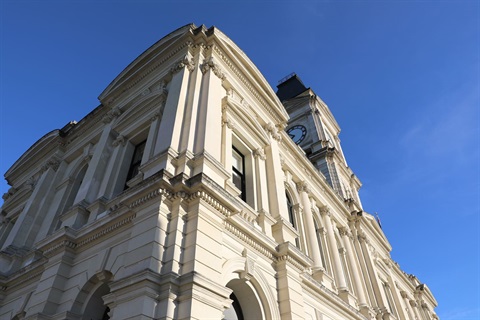Councils to Consider Collaborating on Water Services Delivery Options
Published on 18 February 2025

Four southern district councils are considering working together to investigate options for ensuring the efficient and sustainable delivery of water services to their communities.
Gore District Council, Clutha District Council, Central Otago District Council, and Waitaki District Council will discuss signing an agreement to formalise their relationship at meetings over the next few weeks. The agreement represents a commitment by the councils to work together to examine options for the delivery of water services in the future that meet their communities' expectations and the Government’s new regulatory requirements as set out in Local Water Done Well (LWDW).
LWDW is designed to address New Zealand’s long-standing water infrastructure challenges while maintaining local decision-making flexibility. By September this year, all councils must have identified the best options for delivering water services in the future, talked to their communities about them, and produced a Water Services Delivery Plan. The plans will show how councils intend to deliver water services that meet regulatory requirements, support growth and urban development, and are financially sustainable.
Central Otago District Mayor Tamah Alley said the mayors were committed to finding the best solution for their ratepayers and residents. “We are in a new environment and must focus on providing resilient and sustainable water services for future generations. “The Government and our communities have evolving expectations — not only about the quality of water services but also their affordability,” she said.
Clutha District Mayor Bryan Cadogan said councils were making the best of a very challenging situation.
Gore District Mayor Ben Bell said it was important for people to realise that the delivery of water services will change in the future. “Regardless of whether services remain in-house or are managed by a council controlled organisation, they must be structured and operated differently, with direct accountability to customers, regulators and ratepayers.”
Waitaki District Mayor Gary Kircher said communities were facing major challenges in the affordability of water services. “Those challenges require major changes in how we ‘do water’, and every option needs to be explored to keep water affordable for all ratepayers.”
The agreement sets out the process to consider the design of a joint council-controlled organisation (CCO) and how it compares to other practicable options, such as leaving water services in-house or setting up a standalone Council CCO.
A complete analysis of three options, including the impact on each council’s rates, debt and levels of service, would be presented for community feedback at the end of April.
In a report published last year Morrison Low found that water services delivery in Otago and Southland would become unaffordable without fundamental change. The report estimated that the water bill for 76% of residential users in the two regions would double within 10 years.
Additionally, workforce shortages and infrastructure demands would require regional coordination to avoid inefficiency and competition. The Gore District Council will be the first to consider signing up to the joint investigation with a report going to its meeting this afternoon (Tuesday).
ENDS